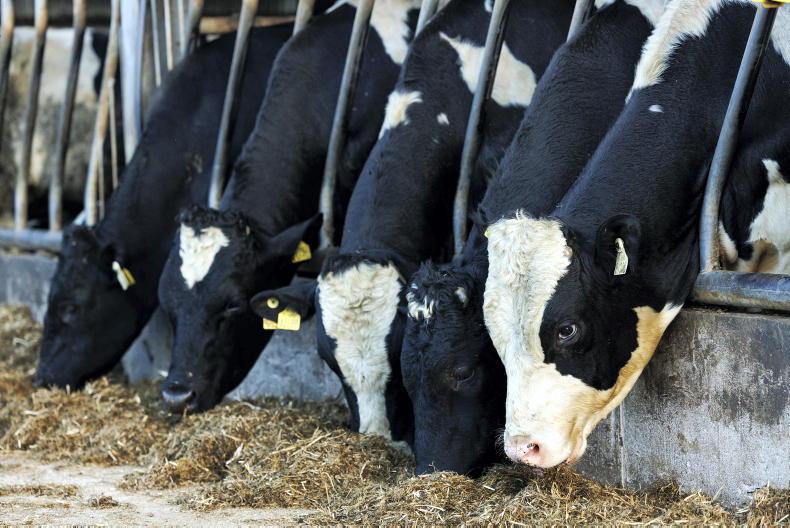Experiencing food security can be deceptive for those of us who have never known otherwise, but all it often takes is a quick look back in history to remember that politics, nation-building – even the very beginning of human society – were all built around food, and a need for food security. Ireland’s history is no different.
Ireland nationalised its sugar industry in the early 1930s and built factories in Mallow, Thurles and Tuam to accompany the existing factory in Carlow. The industry named itself Cómhlucht Siúicre Éireannand as a result, both jobs and an additional income for farmers were created.
Once we joined the European Economic Community (EEC) in 1973, our sugar industry became subject to rules and regulations which eventually put us at a competitive disadvantage to other member states, who could consistently produce high yields of sugar beet for longer periods of time.
Factories
In the 1980s, the Tuam and Thurles factories were closed and Irish sugar was privatised in 1991 under the company Greencore. In 2005, the sugar factory in Carlow was closed and in 2006, the remaining factory in Mallow followed. It was widely contested that not all closures were necessary and in 2010, the European Union Court of Auditors found that the Mallow factory, in particular, did not need to close.
National ambitions
One could say the Irish sugar industry began thanks to politics, and it ended thanks to politics.
Caitriona Devery is a writer and research manager at University College Dublin’s (UCD) Earth Institute. In 2019, she penned a detailed article on the historic beginnings and eventual downfall of the Irish sugar industry for the publication Feast Journal. While researching the topic, what stood out to her were the initial ambitions behind the sugar industry’s intentions.
“The politicians of the time strongly believed in the role of industry and agriculture in social development, Irish independence and sovereignty,” Caitriona tells Irish Country Living. “In a way, it seems almost quaint now, given how embedded we are in global supply chains, but the sugar industry was one way for the new state to be self-sufficient.
“It was never purely about economics, there was a much broader rationale for developing the industry – to create employment, ancillary industries and so on.
“The decline of the industry seems down to Ireland leaving those kinds of ambitions behind by joining the EEC and opening up to globalisation. There have been huge benefits to Ireland as a result, but alongside these come compromises as part of the CAP [common agricultural policy], in terms of what we can produce.”
Policies may have shaped the Irish sugar industry, but it was built by human hands and when the industry came to an end, entire towns were affected.
“Certainly in Ireland, the legacy of the sugar factory closures were huge. The factory jobs were skilled and as a result, lots of ancillary industries grew around the factories in the four towns. After the closure in Carlow, SIPTU union representative Mick Browne said: ‘After the closure of the sugar factory, we lost every piece of manufacturing in Carlow.’”
While she admires the initial ambitions which created the sugar industry – and especially how the Irish state used agriculture as a means of social change – Caitriona ultimately feels there was an air of inevitability surrounding its downfall.
“At the end of the day, joining the EU opened Ireland up in ways that made the indigenous sugar industry unviable,” she says. “We’re so embedded now in complex global food supply chains, as well as being used to a much broader choice of foods. All of this makes the idea of self sufficiency a lot more challenging.
“However, perhaps we should be thinking more about our food security as growing conditions change and weather becomes more unpredictable.”
Is there a future?
When the EU removed its sugar quota for member states in 2017, it was thought by some that Ireland could revive its indigenous sugar industry. Beet Ireland was formed in the hopes of creating a farmer-led cooperative which could make sugar beet a lucrative crop once more – not just for the creation of sugar, but also of bioethanol.
In late 2023, however, it was announced that Beet Ireland would be selling their site in Co Kildare and giving up on the dream of bringing sugar beet back.
Pat Cleary is a tillage farmer who was heavily involved in Beet Ireland from its induction. He says the loss of the industry is a blow not just to farmers, but in terms of our sustainability goals for Irish agriculture.
“The crop itself is probably one of the best for carbon sequestration, and the sugar beet is a versatile crop,” he says. “One of the things we always highlighted was the versatility of the product in terms of [the potential of] its byproducts.
“The people growing sugar beet were committed, top quality tillage farmers,” he continues. “We wanted a structure for farmers to take a stake in so that [what previously happened to the industry] could never happen again. We hung around and we spent so much time [trying to bring it back]. The people involved were doers, they weren’t just talkers. We’re disappointed, but we’ll stay going.”
As the bioeconomy continues to develop in support of Ireland’s Climate Action Plan, however, could a sugar beet revival be part of the solution? Studies have found that sugar beet byproduct could be used as a “feedstock” for bacteria which can create bioplastics and other sustainable alternatives to glues, coatings or cosmetics.
Tanja Narancic is assistant professor of microbiology and biochemistry at UCD. She is also involved in the BiOrbic centre, which is a national collaboration of researchers focused on the development of Ireland’s bioeconomy.
According to Tanja, in order to produce any sugar beet-based bioplastics at scale, we would need to create specific integrated biorefineries.
“Similar to crude oil refinery, in a cascade process, the biorefinery based on sugar beet use could extract sugar, and the waste/side residues of this process could be used as a feedstock for the growth of microorganisms and to produce various products, including lactic acid to make PLA [bioplastic].”
It seems there is little question that sugar beet could be used to the benefit of Ireland’s bioeconomy, it also looks like a lot needs to happen before we get to a place where it is once again viable for Irish farmers.

Paddy Clarke is a part-time tillage farmer and mechanic living in Co Tipperary. In the past, his family supplied sugar beet to the sugar factories in Carlow, Thurles and Mallow before the industry closed down entirely / Janine Kennedy
While the end of the sugar industry touched many livelihoods, smaller tillage farmers who grew sugar beet as part of their regular crop rotation were greatly affected. For them, this was a handy cash crop – the industry supplied the seed and paid up-front for the sugar beet. When the industry ended, many tillage farmers stopped growing sugar beet entirely. Paddy Clarke is one such farmer.
Now farming part-time, Paddy also works as a mechanic in Co Tipperary. For many years, he and his father supplied the sugar factories in Mallow, Thurles and Carlow.
Paddy tells Irish Country Living there was a time when growing sugar beet was profitable for his family’s farm, mainly during the 1990s, but it was always a seasonal crop and during harvesting time, it was incredibly stressful.
He says that while he hasn’t grown sugar beet in decades, “you never forget the hardship” of it.
“When your cards came, you had to harvest the beet within ten days and get it into the factory,” he explains. “It was like someone with a loaded gun pointed at the back of your head. If you missed [the deadline], you had penalties. Every year there were massive queues at the factories; hauliers hated going there.”
When the industry closed, Paddy and his father felt there was no reason to keep it going – that said, they never found a replacement crop as good in a rotation. Some still grow beet for fodder, but the labour and storage required for that didn’t appeal to many.
If it were deemed a viable crop once again, though, would Paddy consider growing sugar beet?
“I’d never do it again,” he says with certainty.
Read more
‘Robust business case’ needed to re-establish sugar beet industry
Bitter taste from Mallow sugar sale
Experiencing food security can be deceptive for those of us who have never known otherwise, but all it often takes is a quick look back in history to remember that politics, nation-building – even the very beginning of human society – were all built around food, and a need for food security. Ireland’s history is no different.
Ireland nationalised its sugar industry in the early 1930s and built factories in Mallow, Thurles and Tuam to accompany the existing factory in Carlow. The industry named itself Cómhlucht Siúicre Éireannand as a result, both jobs and an additional income for farmers were created.
Once we joined the European Economic Community (EEC) in 1973, our sugar industry became subject to rules and regulations which eventually put us at a competitive disadvantage to other member states, who could consistently produce high yields of sugar beet for longer periods of time.
Factories
In the 1980s, the Tuam and Thurles factories were closed and Irish sugar was privatised in 1991 under the company Greencore. In 2005, the sugar factory in Carlow was closed and in 2006, the remaining factory in Mallow followed. It was widely contested that not all closures were necessary and in 2010, the European Union Court of Auditors found that the Mallow factory, in particular, did not need to close.
National ambitions
One could say the Irish sugar industry began thanks to politics, and it ended thanks to politics.
Caitriona Devery is a writer and research manager at University College Dublin’s (UCD) Earth Institute. In 2019, she penned a detailed article on the historic beginnings and eventual downfall of the Irish sugar industry for the publication Feast Journal. While researching the topic, what stood out to her were the initial ambitions behind the sugar industry’s intentions.
“The politicians of the time strongly believed in the role of industry and agriculture in social development, Irish independence and sovereignty,” Caitriona tells Irish Country Living. “In a way, it seems almost quaint now, given how embedded we are in global supply chains, but the sugar industry was one way for the new state to be self-sufficient.
“It was never purely about economics, there was a much broader rationale for developing the industry – to create employment, ancillary industries and so on.
“The decline of the industry seems down to Ireland leaving those kinds of ambitions behind by joining the EEC and opening up to globalisation. There have been huge benefits to Ireland as a result, but alongside these come compromises as part of the CAP [common agricultural policy], in terms of what we can produce.”
Policies may have shaped the Irish sugar industry, but it was built by human hands and when the industry came to an end, entire towns were affected.
“Certainly in Ireland, the legacy of the sugar factory closures were huge. The factory jobs were skilled and as a result, lots of ancillary industries grew around the factories in the four towns. After the closure in Carlow, SIPTU union representative Mick Browne said: ‘After the closure of the sugar factory, we lost every piece of manufacturing in Carlow.’”
While she admires the initial ambitions which created the sugar industry – and especially how the Irish state used agriculture as a means of social change – Caitriona ultimately feels there was an air of inevitability surrounding its downfall.
“At the end of the day, joining the EU opened Ireland up in ways that made the indigenous sugar industry unviable,” she says. “We’re so embedded now in complex global food supply chains, as well as being used to a much broader choice of foods. All of this makes the idea of self sufficiency a lot more challenging.
“However, perhaps we should be thinking more about our food security as growing conditions change and weather becomes more unpredictable.”
Is there a future?
When the EU removed its sugar quota for member states in 2017, it was thought by some that Ireland could revive its indigenous sugar industry. Beet Ireland was formed in the hopes of creating a farmer-led cooperative which could make sugar beet a lucrative crop once more – not just for the creation of sugar, but also of bioethanol.
In late 2023, however, it was announced that Beet Ireland would be selling their site in Co Kildare and giving up on the dream of bringing sugar beet back.
Pat Cleary is a tillage farmer who was heavily involved in Beet Ireland from its induction. He says the loss of the industry is a blow not just to farmers, but in terms of our sustainability goals for Irish agriculture.
“The crop itself is probably one of the best for carbon sequestration, and the sugar beet is a versatile crop,” he says. “One of the things we always highlighted was the versatility of the product in terms of [the potential of] its byproducts.
“The people growing sugar beet were committed, top quality tillage farmers,” he continues. “We wanted a structure for farmers to take a stake in so that [what previously happened to the industry] could never happen again. We hung around and we spent so much time [trying to bring it back]. The people involved were doers, they weren’t just talkers. We’re disappointed, but we’ll stay going.”
As the bioeconomy continues to develop in support of Ireland’s Climate Action Plan, however, could a sugar beet revival be part of the solution? Studies have found that sugar beet byproduct could be used as a “feedstock” for bacteria which can create bioplastics and other sustainable alternatives to glues, coatings or cosmetics.
Tanja Narancic is assistant professor of microbiology and biochemistry at UCD. She is also involved in the BiOrbic centre, which is a national collaboration of researchers focused on the development of Ireland’s bioeconomy.
According to Tanja, in order to produce any sugar beet-based bioplastics at scale, we would need to create specific integrated biorefineries.
“Similar to crude oil refinery, in a cascade process, the biorefinery based on sugar beet use could extract sugar, and the waste/side residues of this process could be used as a feedstock for the growth of microorganisms and to produce various products, including lactic acid to make PLA [bioplastic].”
It seems there is little question that sugar beet could be used to the benefit of Ireland’s bioeconomy, it also looks like a lot needs to happen before we get to a place where it is once again viable for Irish farmers.

Paddy Clarke is a part-time tillage farmer and mechanic living in Co Tipperary. In the past, his family supplied sugar beet to the sugar factories in Carlow, Thurles and Mallow before the industry closed down entirely / Janine Kennedy
While the end of the sugar industry touched many livelihoods, smaller tillage farmers who grew sugar beet as part of their regular crop rotation were greatly affected. For them, this was a handy cash crop – the industry supplied the seed and paid up-front for the sugar beet. When the industry ended, many tillage farmers stopped growing sugar beet entirely. Paddy Clarke is one such farmer.
Now farming part-time, Paddy also works as a mechanic in Co Tipperary. For many years, he and his father supplied the sugar factories in Mallow, Thurles and Carlow.
Paddy tells Irish Country Living there was a time when growing sugar beet was profitable for his family’s farm, mainly during the 1990s, but it was always a seasonal crop and during harvesting time, it was incredibly stressful.
He says that while he hasn’t grown sugar beet in decades, “you never forget the hardship” of it.
“When your cards came, you had to harvest the beet within ten days and get it into the factory,” he explains. “It was like someone with a loaded gun pointed at the back of your head. If you missed [the deadline], you had penalties. Every year there were massive queues at the factories; hauliers hated going there.”
When the industry closed, Paddy and his father felt there was no reason to keep it going – that said, they never found a replacement crop as good in a rotation. Some still grow beet for fodder, but the labour and storage required for that didn’t appeal to many.
If it were deemed a viable crop once again, though, would Paddy consider growing sugar beet?
“I’d never do it again,” he says with certainty.
Read more
‘Robust business case’ needed to re-establish sugar beet industry
Bitter taste from Mallow sugar sale










SHARING OPTIONS